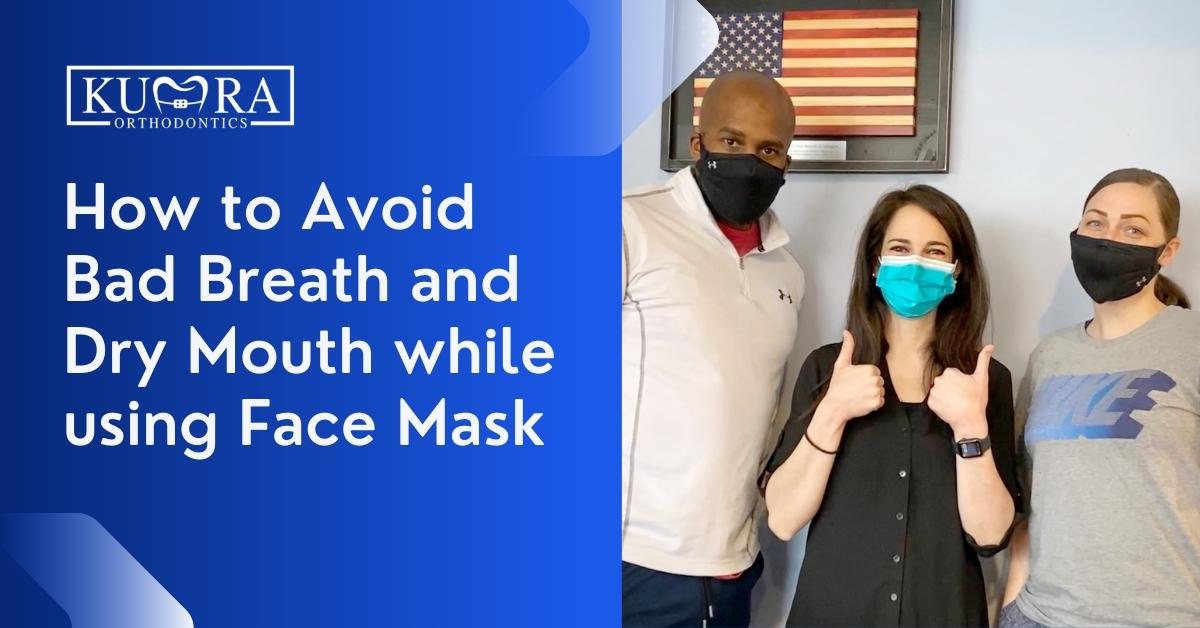It has been a year since the outbreak of the COVID-19 pandemic began, and it has brought with it many changes—one who wears a mask. Masks are essential for protecting yourself and your community from the spread of disease.
Sadly, wearing a mask has some drawbacks for the mask wearer, namely maskne (mask acne) and a mask mouth. Bad breath, dry mouth, and even irritated and bleeding gums can occur due to wearing a mask for lengthy periods.
Gum disease and cavities have skyrocketed in recent years due to dry mouth and bacteria buildup associated with mask mouth.
What is dry mouth
Saliva is essential for our mouths to remain moist and clean, as well as for our bodies to break down food. Bacteria and fungi in the mouth are controlled by saliva, preventing infection.
Your mouth becomes dry and unpleasant when you don’t produce enough saliva. Dry mouth, medically known as xerostomia, can be treated with a wide variety of methods.
What causes dry mouth?
The treatment of dry mouth is also dependent on the cause, which can vary widely.
A dry mouth is often listed as a side effect of antihistamines, decongestants, muscle relaxants, and pain relievers. Another factor to consider is the use of chemotherapy drugs. Aside from medication side effects, the following factors can contribute to dry mouth:
- Aging
- Tobacco use
- Alcohol use
- Diabetes that is poorly controlled
- Stroke
- Sleeping with an open mouth and snoring
In addition to bad breath, there are a few other indications that you may be suffering from a dry mouth. Difficulties in chewing, swallowing, speaking, a sore throat, and altered taste perception are signs of dry mouth.
Needing an orthodontic appointment?
Visit Kumra Orthodontics Washington, DC or Kumra Orthodontics Stafford, VA, and request an appointment with us!
How dry mouth contributes to bad breath
Bad breath is something we’ve all experienced at some point in our lives. At the same time, though, it can be embarrassing at times and cause us to feel self-conscious as a result. Practicing regular dental hygiene is the best way to avoid bad breath in most circumstances.
Other conditions may produce foul breath, such as dry mouth, but have nothing to do with poor dental care.
The good news is that you can make efforts to detect and treat your dry mouth and bad breath and prevent these problems from repeating, no matter what the reason may be.
Having bad breath or halitosis is a symptom of poor dental hygiene and may indicate various health issues. The items you eat and other bad lifestyle behaviors contributing to bad breath might also exacerbate the condition.
Treatment
A dry mouth needs regular brushing and flossing of the teeth and gums. Use mouthwash and brush your teeth at least twice a day. Doing so will help to keep your teeth healthy and prevent cavities. People with dry mouths are more likely to develop cavities and decay.
In addition, increasing saliva production is critical. Saliva serves as a natural antiseptic for the mouth and teeth. It is possible to alleviate the symptoms of a dry mouth by using some dry mouth medications.
Even if you have a dry mouth, there are things you may take to address it. When treating dry mouth, most patients require a two-pronged approach: Dental soreness and foul breath are among the most common side effects of periodontal disease.
Antibiotics may also be prescribed if there are signs of an oral infection during treatment. As part of the process of treating your dry mouth, your doctor will undertake testing to rule out any underlying medical concerns or make changes to your current drugs and dosages.
Prevention
There are techniques to prevent bad breath even before you reach the stage of treatment. Maintaining excellent oral hygiene is the best way to keep foul breath and mouth sores at bay if you have a restricted number of treatment options or suffer from one of the medical disorders that can cause xerostomia. Avoiding smoking or drinking alcohol and caffeine, such as consuming large amounts of coffee or alcohol, can help alleviate dry mouth symptoms.
For those who suffer from dry mouth, various therapeutic options are available. Regular dentist checkups are essential for maintaining an effective oral hygiene regimen. A dry mouth might have long-term consequences if you don’t take care of your mouth and teeth. As a result, your prognosis is dependent on the therapy you receive for the underlying illness that is causing the dry mouth.
Get in touch with Kumra Orthodontics to learn more about bad breath from dry mouth
Mask mouth is a serious concern, and it can be an unavoidable consequence of wearing masks. Fortunately, there are some things you can do to avoid the problem. Getting in touch with our team and orthodontist will help equip you with more information about how bad breath due to dry mouths occurs and what steps you should take if this becomes an issue for yourself.



